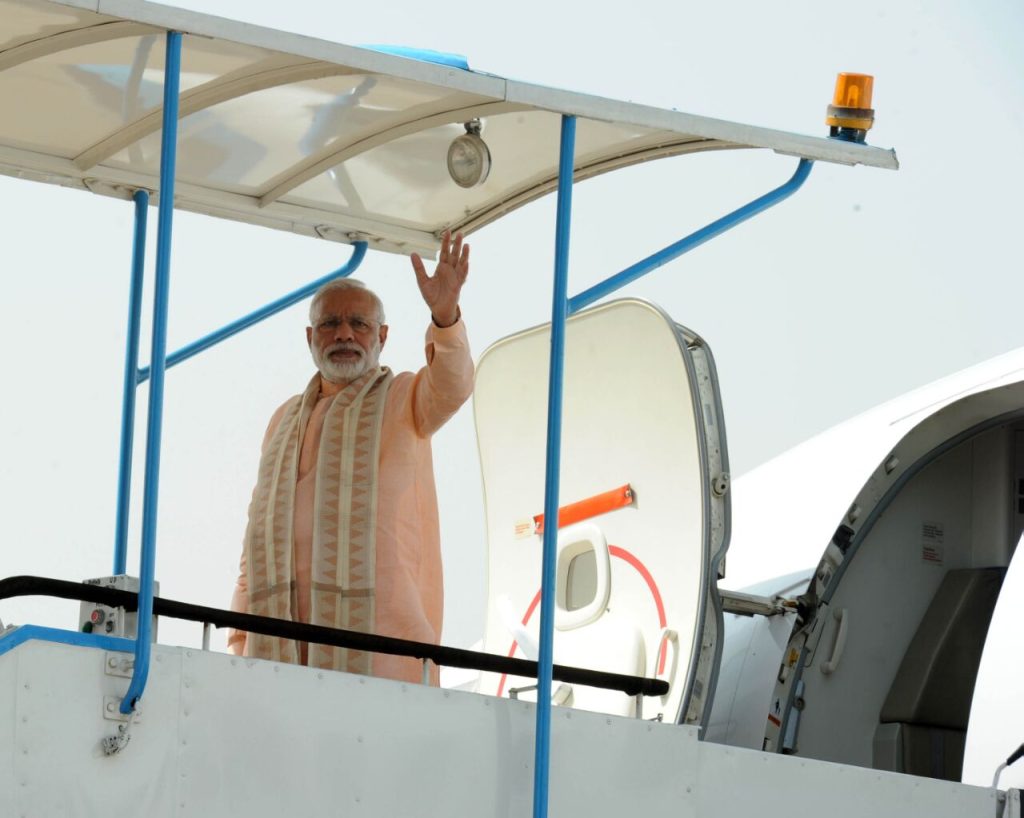Prime Minister Narendra Modi today began a three-day visit to Japan. The two countries as expected to sign a civil nuclear agreement. They will also discuss ways to boost cooperation in trade, investment, and security.
PM Narendra Modi Departs for Japan
In his second visit to Japan as Prime Minister, Modi will be holding the annual Summit meeting with his counterpart Shinzo Abe and have an audience with the Emperor of Japan in Tokyo.

“An eastward sojourn begins, this time for the Annual Summit with Japan. PM departs for Tokyo,” External Affairs Ministry spokesperson Vikas Swarup said on twitter this morning.
From Tokyo, Modi, accompanied by Abe, will travel to Kobe by the famed Shinkansen bullet train. Japan will deploy the technology for the Mumbai-Ahmedabad High-Speed Railway.
He will visit the Kawasaki Heavy Industries facility in Kobe, where high speed railway is manufactured.
“I will have a detailed interaction with top business leaders from India and Japan, to look for ways to further strengthen our trade and investment ties,” Modi said in a statement yesterday.
The PM said he looks forward to reviewing the entire spectrum of bilateral cooperation when he meets Abe in Tokyo tomorrow.
“Our partnership with Japan is characterized as a Special Strategic and Global Partnership. India and Japan see each other through a prism of shared Buddhist heritage, democratic values, and commitment to an open, inclusive and rules-based global order,” he added.
During the visit, the two countries are expected to sign a civil nuclear cooperation agreement. A broad agreement reached during Prime Minister Abe’s visit to India last December. However, the final deal delayed due to pending technical and legal issues.
Negotiations – Discussion Mumbai-Ahmedabad High-Speed Railway
Both the countries have completed the internal procedures including legal and technical aspects of the text of the pact. External Affairs Ministry spokesperson Vikas Swarup said last week.
Negotiations for the nuclear deal have been ongoing for several years. However, progress stalled due to political resistance in Japan following the 2011 Fukushima nuclear disaster.
Also Read:
- India’s Bold Stand: Full Boycott of Turkey and Azerbaijan Explained
- INDIA Starts “OPERATION SINDOOR” and Targets Terror Camps in Pakistan and PoK


